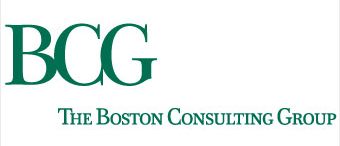- Experiencing versus Owning Luxury
Yearly Sales of Deluxe Experiences—from Art Auctions to Spas to Safaris—Are Growing 50 Percent Faster Than Sales of High-End Goods, Says New Report from The Boston Consulting Group.
The shift from owning a luxury to experiencing a luxury is accelerating—and many providers of high-end goods such as watches and handbags may soon miss out on a huge growth opportunity if they don’t get smart about their customers’ new inclinations.
That’s one of the key findings in Luxe Redux: Raising the Bar for Selling of Luxuries, the latest report on global luxury markets from The Boston Consulting Group (BCG.) The research behind the report shows that experiential luxury now makes up almost 55 percent of total luxury spending worldwide and, year on year, has grown 50 percent faster than sales of luxury goods. Even in brand-obsessed China, where personal luxury goods serve as a strong badge of status and success—with sales surging 22 percent annually—experiential luxury dominates, growing at 28 percent each year.
The business of luxury experiences is by no means limited to exclusive art, safaris, and spas. Some hospitals offer deluxe accommodations—with butlers, specialty chefs, and marble baths—while some airlines are starting to offer private suites, and some luxury high-rise apartment buildings are featuring movie-screening rooms and virtual-golf facilities.
Four trends are driving the move toward experiential luxury:
- The dictates of demographics. In developed economies such as the U.S., Japan, and Europe, consumers who drove the luxury boom in the 1990s are now beginning to retire. They have reached a stage in life when they no longer need nor want to own new “things”—so they are primary customers for experiential-luxury offerings.
- Changes in consumption patterns. When middle-class consumers in rapidly developing markets become more affluent and first buy into luxury, they are drawn to long-lasting goods with reputable brands. But over time, they tend to move from accumulating material goods to buying new experiences—and this is reflected in recent growth rates for experiential-luxury spending.
- Generation Y does things differently. Members of Generation Y—today’s late teens and twenty-somethings—tend to define themselves more by what they have done and experienced than by what they own. They are drawn to instant pleasure and lavish experiences—helicopter snowboarding in Alaska or a weekend shopping spree in Paris, for example.
- Quest for lasting satisfaction. Consumers indicate that they are seeking a greater sense of purpose and satisfaction, and luxury experiences often fulfill those wishes more strongly than do purchases of luxury things.
Leading providers of luxury goods are starting to catch on—albeit cautiously. Examples include:
- LVMH, one of the world’s largest luxury companies, is developing its Cheval Blanc hotel franchise; there is already one Cheval Blanc hotel in Courchevel, a French ski resort, and another in the Maldives, and LVMH plans to open locations in Oman and Egypt in 2012.
- BMW, the German automaker, was one of the first high-end carmakers to turn the experience of waiting for delivery of a new car from frustrating ordeal into fun-filled activity: buyers of BMW’s Mini Cooper cars receive new-owner updates about the assembly of their car and its journey from the factory.
- IWC, the Swiss watchmaker, which has a watch museum at its headquarters, promotes its Pilot’s watches in its flagship store in Hong Kong by offering customers a “ride” in a flight simulator with an extra-large screen and surround sound.
But BCG argues that such efforts are too few and too hesitant. The shift toward experiential luxury will continue, and, providers of deluxe products must—at the very least—keep pace with this important consumer trend.
Cognac can be owned but it must be personally experienced to be truly understood and consequently fully appreciated. 'Experience Cognac' is a clever idea which purpose is to initiate this concept of experience. See http://www.experiencecognac.com
I think this report on luxury consumption from BCG highlights the current trend of living rather than being which also applies to cognac. Cognac is more than a drink but a lifestyle and I hope to see an increasing number of cognac bars eager to represent the diversity of cognacs.
Source: BCG Press Release: a copy of the report can be downloaded at www.bcgperspectives.com.
- LVMH, one of the world’s largest luxury companies, is developing its Cheval Blanc hotel franchise; there is already one Cheval Blanc hotel in Courchevel, a French ski resort, and another in the Maldives, and LVMH plans to open locations in Oman and Egypt in 2012.


No comments:
Post a Comment